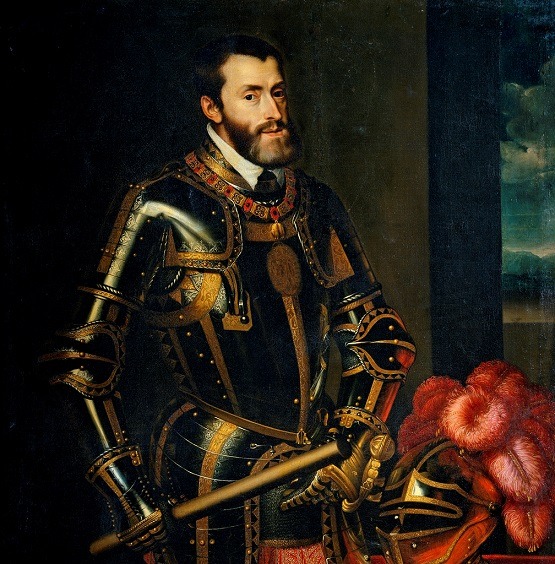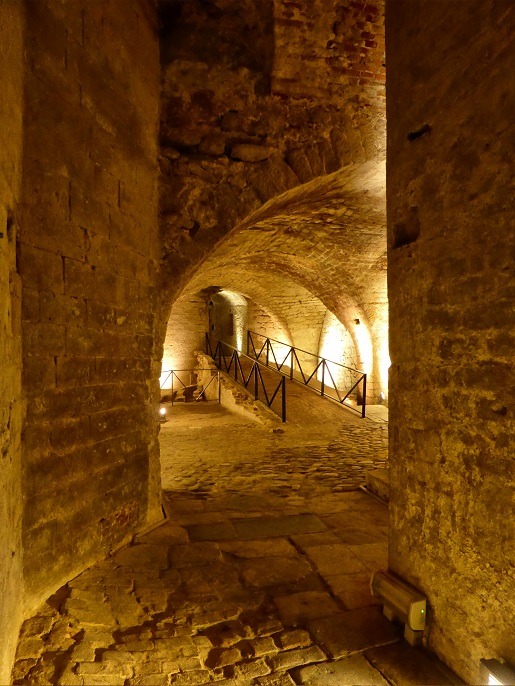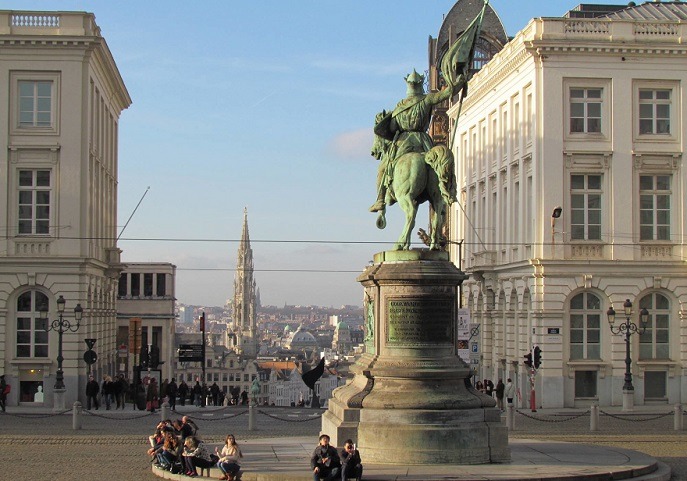In these times of euroscepticism, Brussels is often belittled as the home of unelected, faceless and gray officials. With populism on the rise, the idea of a united continent seems further away each day. Could thinking back 500 years ago to Charles V show us the way forward?
"It's nonsense to say that Charles V was the founder of Europe," says historian Roel Jacobs, an expert on Brussels' history, dismissively.
"But together with the kings of France and England, he was in power at a crucial time as Europe entered the modern period. And he was the most important and powerful of the three kings," says Jacobs.
He also underlines how much the current capital of Europe was at the heart of the continent even at that time.
"Clearly for Charles V, Brussels was the centre of his empire."
Capital of Europe
The Brussels historian sees clear parallels between how Brussels became the de facto centre of Europe by financing the building of European institutions and assuming the costs of the international institutions.
In the same manner, 500 years ago, the town of Brussels was busy ensuring itself a place as the main residence for Burgundian and Hapsburg rulers by becoming a centre for luxury industries at the time, including tapestries.
There were no capital cities in that period, but rather towns where rulers stayed longer than in other towns, Jacobs stresses. And Brussels sought to become the most important residence in a bid to attract the spending, also on luxury items that were associated with the presence of kings and dukes.
"From the 14th Century onwards, Brussels invested significantly in becoming a political centre. The most spectacular investment was for the construction of the Magna Aula, the main meeting room of the palace. The remains are today under the Place Royale. It was all done to convince the Duke of Burgundy to come to Brussels," says Jacobs.
Centre of a Global Empire
Jacobs further stresses that the emperor's life was tied to Brussels from his earliest years. It had previously been the main residence of his parents. And in Brussels, at the age of one, Charles V became a knight of the Order of the Golden Fleece. And although Charles V died in a monastery at San Jerónimo de Yuste in Spain, the then Duke of Burgundy assumed rule over the Low Countries and was proclaimed king of Aragon and Castile in Brussels in March 1516.
"Another example of the importance of Brussels is that when he defeated the German Protestants in the far east of Germany, the two most important prisoners were brought all the way to Brussels," he says. "It's clear that, for Charles, the centre of his empire was Brussels. It is only the Spanish countries that were ruled from Spain. The rest of the empire was ruled from Brussels."

Portrait of Charles V. He lived between 1500 – 1558 and was the Holy Roman Emperor, King of Spain, Naples, and Sicily, King of the Burgundian Netherlands and King of New Spain (Mexico). He ruled over such a large territory that his empire was known as the one “in which the sun does not set”.
And Brussels remained central to Charles throughout his life, also as Holy Roman Emperor from 1530. It was also in Brussels, at the Coudenburg palace in 1555, that Charles abdicated, splitting between his brother and son an empire that then spanned almost four million square kilometres in Europe and Spanish colonies in the Americas and Asia.
Where was Charles born?
So what about Ghent, you ask? The Encyclopedia Britannica lists Charles V as being born on 24 February 1500 in Ghent. And in true Belgian fashion, some historians have even claimed that Charles V's mother gave birth in the small town of Eeklo, several days before the official date.
"The evidence for Eeklo is not very strong. And in Eeklo, they don't take the story so seriously themselves," counters Jacobs. "But Ghent was nonetheless very angry. Probably, the story is not true," he adds, pointing to a mistake in an obscure 500-year old document listing gifts and payments.
Was Charles Flemish?
Jacobs goes on to acknowledge Charles V's continual relevance in terms of the perennial struggle between Flanders and French-speaking Belgium. So was Charles V also a Fleming? Or did he not speak any Flemish as claimed by French-speaking historians?
"The Flemish pretend that he spoke Dutch. But his main language as a young man was certainly French. Later on he spoke Spanish."
"I cannot prove that he was not able to speak Dutch. If he was able to do so, it was not his most able language."
Jacobs, who also serves as historical advisor to Brussels tourist agency VisitBrussels, admits that Charles V is an important element in attracting tourists. That no doubt explains the continuing rivalry between cities and regions that claim Charles V as their own.
"There is rivalry. It is the political problem of the relations between Flanders and Brussels; with the linguistic aspect and the idea of Flemings insisting on the value of their history. They don't like us saying that Brussels was so important," concludes Jacobs.

The Magna Aula was the main meeting room of the palace and parts of the remaining rooms and passages adjacent to the Magna Aula can still be visited today.
| Carolus Festival Try out the Charles V or Carolus Festival. Organised from May to September by the Brussels tourist agency, it aims to showcase the importance of Brussels in Europe's renaissance heritage and history. For the full programme including concerts, exhibitions and theatre, see www.carolusfestival.brussels. The main event is of course the Ommegang or procession through the narrow streets from the Parc de Bruxelles to the Grand Place on Wednesday 5 and Friday 7 July. The procession mimics the parade held in 1549 in honour of Charles V and his son. Some 1,400 people take part, including musicians, dancers, horsemen, guards and standard-bearers. Other activities include a medieval village, market and jousting exhibition, and a crossbow workshop. The festival also boasts treasure hunts for children and a family day (21 May) at Coudenberg Palace with games, themed workshops, a period buffet, crossbow shooting, encounters with Ommegang characters, dance classes and guided tours. |

